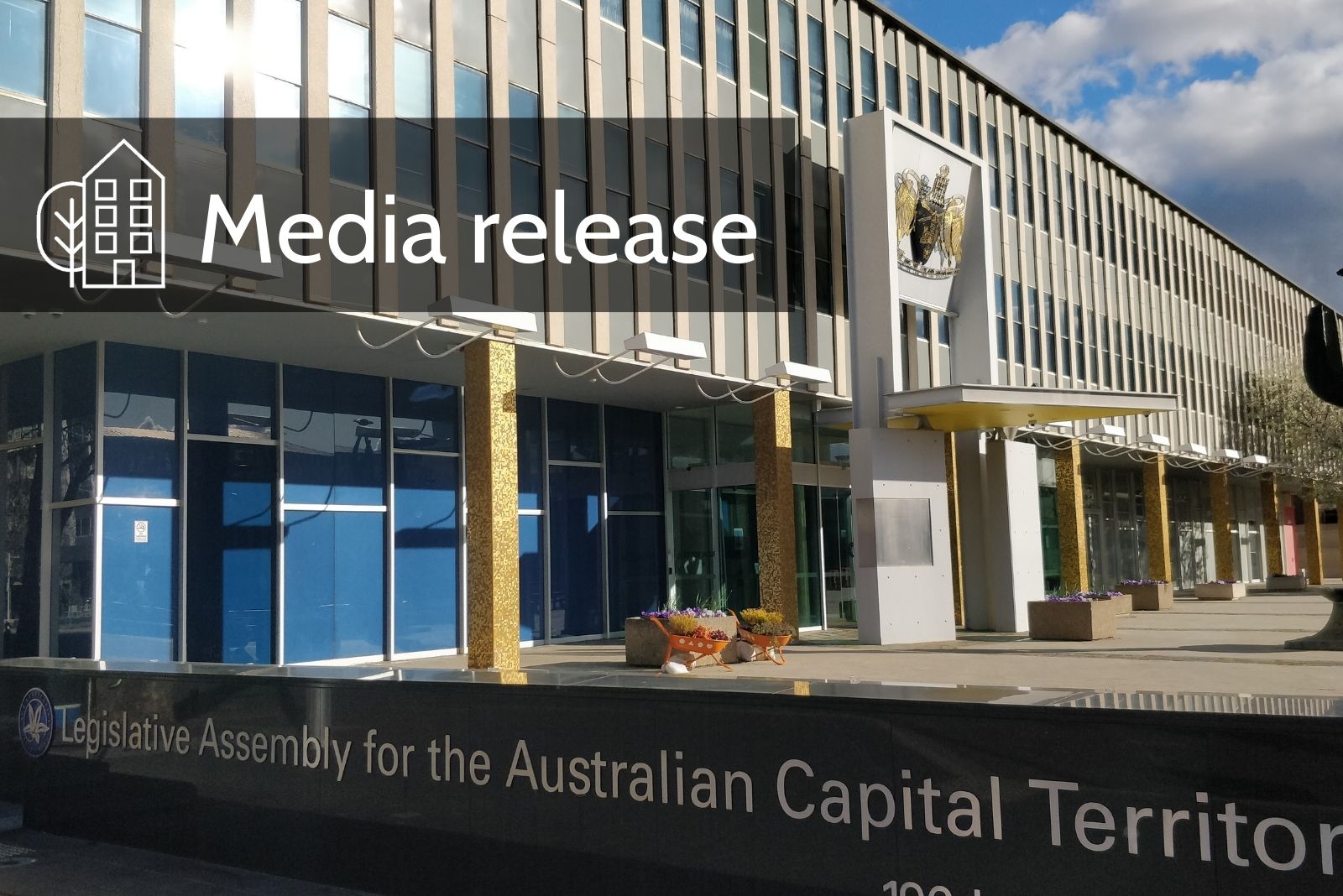The ACT Legislative Assembly Planning Committee has endorsed Greater Canberra’s call for an affordability objective, but their report on the Planning Bill shows the need for a renewed focus on housing affordability and supply throughout our planning laws.
The below statement is attributable to Howard Maclean, Convenor, Greater Canberra.
The Standing Committee on Planning, Transport and City Services report on the ACT Government’s Planning Bill 2022 has recommended that the principles of good planning be amended to include a clear provision on housing affordability.
Such an amendment was a key recommendation of our submission to the Committee. It is essential that the Government places housing affordability and adequate housing supply at the centre of the new Planning Act. Anything less would be a betrayal of the many Canberrans struggling to find a place to call home in a market with chronically low vacancy rates.
We encourage the Assembly to adopt this recommendation. In doing so:
- Housing affordability should be a standalone principle, and not tacked on to an existing principle as a subclause. The Planning Act should speak clearly that housing affordability is a key, standalone outcome.
- Reducing poverty and homelessness needs to be an explicit element of the housing affordability principle. Our planning system is key in determining the amount of public, social and community housing available for society’s most vulnerable, and the principles should acknowledge this.
- However, the housing affordability principle should not be limited to just public and social housing. The planning system determines private sector rents and home prices by determining supply. It should work to reduce housing costs for all Canberrans by ensuring abundant housing supply across all sectors of the housing market.
- Every district should pull their weight with new housing supply, reducing the socio-economic segregation that has grown in recent decades.
This focus on housing affordability and adequate supply is desperately needed. Over the past five years, Canberra’s population has boomed and rents have risen by 17%, compared to 3% growth in Melbourne and a 2% decrease in Sydney. Meanwhile, the ACT Government’s recent District Strategies plan for only 2,400 new homes per year over the next 25 years.
We note with regret that many of the Committee’s other recommendations would make our planning system more complex, slower, and more gameable by anti-housing activists.
Canberrans voted for a government that promised to tackle housing affordability, not a vetocracy where a few individuals with time or money can delay much-needed housing through many months of ACAT hearings. To achieve the outcomes that Canberrans voted for - delivering the housing we need, and meeting our infill target - we need an efficient planning system, not one where every duplex and triplex is vulnerable to litigation - a situation that could be made worse by the Committee’s recommendations.
As outlined in our submission to the Committee’s inquiry, there are steps we could take in the other direction. We could exclude social and public housing from ACAT third party merits review processes, and streamline approval processes for pre-approved exemplar housing designs - similar to Melbourne’s ‘Future Homes’ program.
Ultimately, we need our politicians to engage in a serious discussion around how we can meet demand for ‘missing-middle’ townhouses and terrace-houses in our inner city, near to jobs and amenities. If our planning laws continue to frustrate efforts to meet demand for new homes in existing suburbs, it is our community and our environment that will suffer.
In responding to this report, the ACT Government and Assembly need to step up to the plate, and face our city’s housing affordability and environmental challenges head on.
About Greater Canberra
Greater Canberra is a community advocacy group committed to affordable and high-quality housing in Canberra. We believe in a future where housing is abundant, and where everyone can enjoy a more sustainable and liveable city. For more information, see https://greatercanberra.org.
